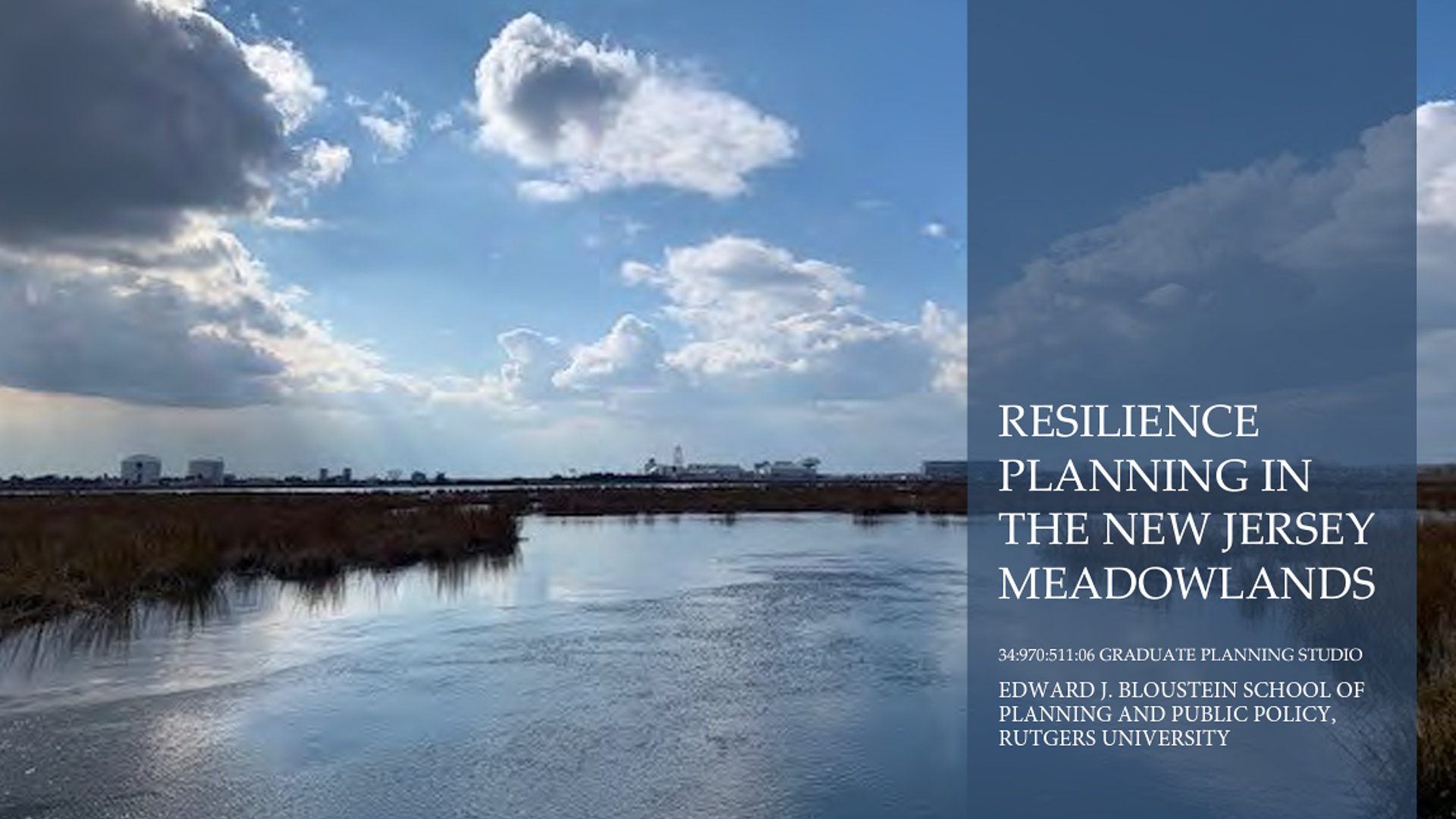This report includes an evaluation of existing resilience planning in the New Jersey Hackensack Meadowlands District and the larger Meadowlands region with recommendations on possible next steps for promoting science-informed, and equitable climate adaptation. The report is the outcome of a spring 2023 graduate planning studio course at the Rutgers University Edward J. Bloustein School of Planning and Public Policy that was a collaborative effort with the National Science Foundation Coastlines and People Megalopolitan Coastal Transformation Hub (www.coastalhub.org).
This studio reviewed the twelve resilience mitigation strategies outlined in the NJSEA’s 2020 Master Plan update, as well as resilience elements of the U.S. Department of Housing and Urban Development Rebuild By Design planning process. In addition to reviewing the NJSEA’s efforts in managing and maintaining stewardship of the land, this report also incorporates materials by the Meadowlands Conservation Trust (MCT), which was established by law in 1999, to acquire, preserve and manage ecologically sensitive areas. This studio also reviewed a variety of other stakeholders’ climate mitigation plans, including county Hazard Mitigation plans, four plans developed in other areas of the state as part of the Resilient NJ program, municipal master plans for the fourteen municipalities within the District, and the products of the Rebuild By Design initiative. Many of the local hazard mitigation plans (HMPs) were sufficient in scope and ambition, but too narrowly geographically focused for the purposes of this studio or the NJSEA. Ultimately, this studio found that, while there are a variety of efforts underway in the District and throughout the region to consider planning for resilience, these efforts fall short of building public support and a framework for a cohesive approach to climate resilience planning that benefits the Meadowlands region as a whole.
Significant research time was devoted to looking into how the rules, policies, regulations, and organizational mandates of different stakeholders influenced and shaped resiliency approaches in the greater Meadowlands region. Some of the rules and policies that were studied include the currently proposed NJDEP rules on inland flooding, anticipated NJDEP rules on coastal flooding, the Army Corps of Engineers (ACOE) NY & NJ Harbor & Tributaries Focus Area Feasibility Study (HATS), and recently updated FEMA local mitigation planning guidance, provisions for consideration of natural hazards as part of a 2021 amendment to the New Jersey Municipal Land Use Law (MLUL), and other standards and guides for defining basic resilience standards in the Meadowlands.
Instructors: Jeanne Herb, Zoë Linder-Baptie

